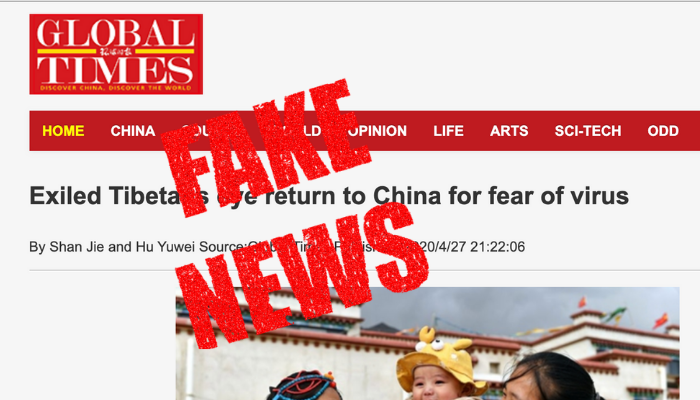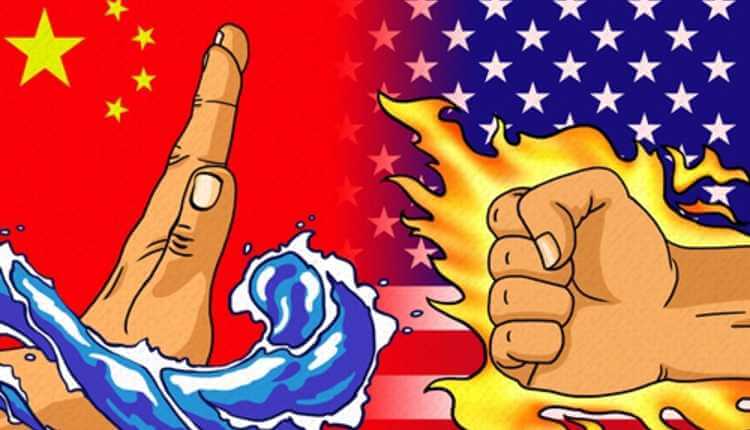In the past few days, we have heard of ‘Global Times’ more than we would usually do, be it concerning Covid-19 or border skirmishes in Ladakh. This news agency is quite unlike the ones you come across every day. It has long been debated that Global Times is simply a mouthpiece of the Communist Government. In this article, I will try to unfold the truth about Global Times.
What is Global Times
The Global Times is NOT an independent journal. Chinese Communist Party (CCP) sponsored People’s Daily has a dedicated section to comment on international issues, and that is what we know as The Global Times. This tabloid daily publishes in both Chinese and English, and they have all means of accessibility(physical copies, e-paper, app, etc.), so anyone from any corner of the world can access them. Initially, they might appear to you as any other newspaper.
It is no secret that China has strong censorship and has had issues regarding freedom of speech and freedom of Press. The current Editor-in-Chief for both English and Chinese versions, Hu Xijin, is a former army officer and a current party member. The daily is known for its abusive and cavilling editorials. Being a state-approved newspaper along with an Editor-in-Chief from inside, it definitely comes through numerous filtration and no wonder a CCP approved daily would be biased.
A Brief History of (Global) Times
The tabloid daily started as a Chinese newspaper in 1993. The English version was launched in 2009 to compete with the global media. Global Times started its US edition in 2013, and next year in 2014, it started an African edition. Notably, the US State Department labelled it as a “foreign mission”. Global Times, since it started, has a distinctive nationalistic stance. Global Times is often representing the thoughts and views of the leaders of the Communist Party.
Global Times and Controversies
By now, it is very clear that Global Times has a stance slanted towards the Chinese Communist Party. This newspaper has been involved in various controversies. Global times received accusations of launching an astroturfing campaign throughout China during the arrest of the artist, activist Ai Weiwei favouring Communist Party’s stance of tagging him as a “maverick”. A former editor Richard Burger has conformed to the accusations.
For many a time, Global Times’s stance on Xingjiang province border dispute or pro-democracy movements in Hong Kong and Tibet has been controversial. Global Times had run a boycott campaign against famous pro-democracy singer of Hong Kong Denis Ho and made deprecating commentaries about him. Global Times drew a lot of backlash in Hong Kong in the wake of the protests in 2016. Still, Global Times blatantly went on to criticize Listerine (a company that was represented by Denis Ho) for retaining the singer activist.
Recently Global Times has been in the news for misleading news regarding two issues: The Indo-China border skirmishes in Ladakh and COVID-19 Pandemic. Global Times failed to give an actual analysis of the scenario in the Chinese side of the border. It simply printed exaggerated party rhetorics when it came to military clashes in Pangong Tso lake region of Ladakh.
Global Times received quite a lot of heat from the global community for spreading wrong and deceiving information regarding COVID-19 Pandemic using targeted Facebook advertisements. Not only Global Times but also “Xinhua News Agency”, another Chinese franchise has been listed for spreading false information concerning the origin of the Virus. Global times has even published some conspiracy theories with an obvious tinge of nationalist rhetoric where the West was shown to be actually responsible for the Pandemic.

Taken from the official website of Central Tibetan Administration. an example of spreading misinformation regarding COVID-19
Does Global Times have a Propaganda Against West?
It is no secret that the US-China relations have taken a very sour turn recently. China and the US have long been involved in an undulating trade war, and the two superpowers are now and then throwing mud at each other. The Pandemic has made the ties even more bitter. President Donald Trump has accused China as solely responsible for the COVID-19 Pandemic. Neither did President Xi Jinping go soft on the USA. Now, the fundamental difference between these two countries that makes Global Time biased and not Newyork Times is -putting the whole blame of the Pandemic is the stance of the President of the USA, not the media houses of USA. When it comes to China, it is difficult to differentiate between the stance of the political leaders and the stance of the newspaper agencies.
Let’s look into another case. China has recently passed a controversial National Security law for Hong Kong. This new law not only undermines the autonomy of the region assigned to it constitutionally but reduces the ‘Basic Law’, also known as the mini-constitution, to dust. British left Hong Kong in 1997 with ‘one nation two systems’ which now stands null and void. Considering the threat to democracy in China, Prime Minister Boris Johnson eased immigration rules and VISA accessibility for the people of Hong Kong. This move of the UK was not welcome by the Chinese leadership, and it led to a series of sanctions. In all its pieces Global Times ignored the human rights violation of the Hong Kong region and often refused to give its autonomous status. The Chinese news daily rather looks at Hong Kong as an integral part of the Chinese territory and represents the move by the UK as an imperialist attempt to disturb the peace of Sovereign China. China has been late to report to WHO about the spread of the virus, and many newspapers have pointed the finger at China for the same. Instead of producing a healthy criticism of Government actions, Global Times tried to divert the blame it on the West and Western values of Globalization.
Global Times has consistently maintained its view of western countries, especially the US and the UK, as imperialist superpowers trying to establish hegemony over the Asia Pacific region. The Chinese government never wanted the US or any other country to meddle with their business either inside the border or in the neighbourhood. Although Chinese expansionist behaviour in the South China Sea region was condemned by most of the members of the United Nations, they did not care to make any changes. In the hearings of the case brought against China by the Philippines, the Permanent Court of Arbitration held the People’s Republic of China Responsible for violating the United Nations Convention on the Laws of Sea (UNCLOS) regarding China’s behaviour in the South China Sea region in 2016. China did not pay much heed to the judgement, and it still continues its aggressive behaviour in the region. The Global Times has not taken any stance about China’s expansionism. Even the daily blamed western superpowers for instigating dispute in South China Sea region and manipulating the opinion in the United Nations.
In an editorial Global Times said that the domestic welfare is forgotten in the USA titled “US politics detached from people’s welfare: Global Times editorial” with a quite degrading cartoon that shows America is hiding its filth in the name of ‘Human Rights’. Global Times was criticized by Cyberspace Administration of China itself for “fabricating” news about the South China Sea, USA, North Korea and Hong Kong in 2016. There is a visible anti-waste tilt in the Global Times.
Is Global Times Reliable?
The discussion so far brings us to the question- Is Global Times Reliable? The question does not have a ‘yes or no’ answer. If you asked me whether you could trust Reuters or BBC, I could give you a ‘Yes’ almost certainly. We must understand, Global Times is not a free franchise; it is a state-owned publication. Thus the pro-government tilt in the newspaper should not come as shocking.
We also need to understand China as a nation and its people before making a judgement call. The idea of a nation, as we perceive in liberal democracies, is different from that of Chinese citizens. The idea of nationalist communism on which China stands is not an advocate of individualism, which is the core philosophy of the West. Thus, what deems very biased to us is not biased for the people the publication works.
Global Times is not an international publication, and naturally, it does not bear the liability of serving the global demand as much as it does of the Chinese. Hu Xijin argues that the editorial stance of the news daily is not an outcome of coercion or fear, but the opinion of the people writing it.
Hu is a learned man, and in his distinguished career, he has covered Bosnian and Iranian wars. He is quite aware of the precarious position of the news agencies in China. In an exclusive interview with Quartz, Hu said he visited Tianmen during protests and describes himself as radical and passionate. He said he used to avoid cameras because filming protesters to track them down later is a common practice in China. He mentioned that he used to leave quietly before crackdowns and said, “I don’t want to talk about the details.” Doesn’t that explain a lot?
Hu Xijin believes Global times is slowly and steadily coming out of its nationalistic biased stigma. He aspires to take the news agency to the next level, and some news pieces about Hong Kong protests have achieved that to some extent.
Conclusion:
Censorship does not leave much information for the rest of the world. Global Times has a state monopoly (you could use the world dictatorship) about political news. In 2016 Global Times had approximately 21 foreign experts for its English version who were actively involved in copy-editing and even deciding news pieces as long as they were not political. Nonetheless, the daily gives us a chance to see China’s stance on various issues. It is a constant reminder that China is different from the West and will never trade its traditional beliefs for popular globalized values. You could use the word “Propaganda” against western superpowers to describe the staunch attitude of China. It is high time for China to have some modifications within the CCP and flexibility to enhance peoples fundamental rights that include giving media the freedom for constructive criticism of the political leadership.


